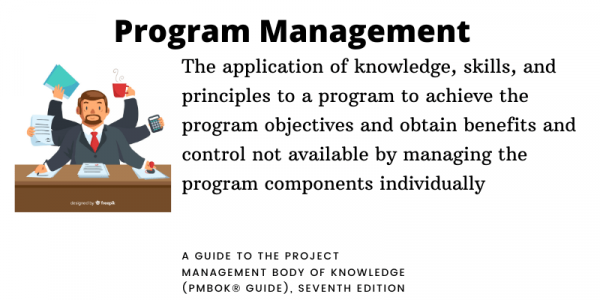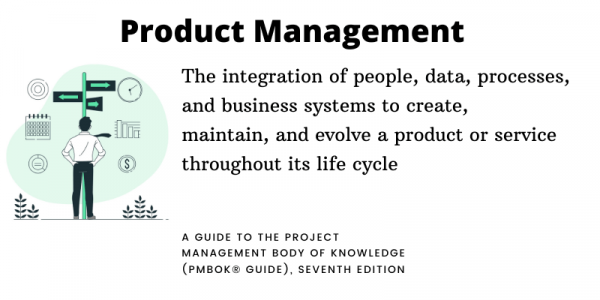Program management is the process of managing a program or group of related projects, usually under the umbrella of a larger initiative. It encompasses all aspects of the program, from inception to execution to delivery.
The program manager is responsible for ensuring that the projects are completed on time, within budget, and to the required quality standards. In addition, the program manager must also ensure that the projects are aligned with the organization’s strategic objectives.
What is Program Management?
Program management is a complex process that requires the ability to juggle multiple balls at the same time. However, with the right tools and processes in place, it is possible to successfully manage a program.
They are constantly in multiple projects that need to be closely coordinated, such as when they share resources or have dependencies on each other. This approach is also used when an organization wants to achieve a specific goal that can only be met by completing multiple projects.

Program Manager Role
The program manager is responsible for the overall program, including scope, schedule, budget, and quality. They coordinate with project managers to ensure that the projects are aligned with the program goals and each other.
Also is responsible for ensuring that all the elements of the program are coordinated and fit together to achieve the desired outcomes.
This includes developing the program plan, setting milestones and deliverables, and managing risks
Program Manager on a daily basis
A program manager’s day-to-day job duties include:
- Establishing and maintaining relationships with stakeholders
- Defining the goals and objectives of the program
- Creating a project plan and timeline
- Tracking progress and ensuring that deliverables are met
- Communicating with teams and individuals involved in the program
- Managing risks and issues
- Escalating issues as necessary
- Reporting on program status
What is Product Management?
A product manager will oversee the entire product life cycle, from conception to launch to post-launch analysis.
They will work with a team of engineers, designers, and marketing professionals to ensure that a product meets the needs of its target customer base and is able to achieve its desired level of success.

Role of the product manager
A product manager is a strategic role that requires both creative and technical skills. They must be able to understand the needs of the customer and the market, and then translate those needs into a product that can be successfully developed and sold.
A product manager must also be able to work with a team of professionals to bring a product to market.
Product managers also collaborate with marketing, sales, and customer success teams to ensure that the product is successful once it launches.
They are responsible for developing the product roadmap and working with the engineering team to bring the product to life.
Product Manager on a daily basis
The day-to-day tasks of a product manager can vary widely, but there are some common threads. A product manager is often responsible for managing the product backlog, writing user stories, conducting user research, and analyzing data.
A product manager must be able to wear many hats. They are part strategists, part project managers, and part salespersons. Also, they must be able to think about the big picture and see the forest for the trees. At the same time, they must be able to sweat the details and get their hands dirty.
Additionally, a product manager must be able to understand and communicate the features and benefits of a product. They must be able to articulate the value proposition to customers, partners, and investors.
Program Management vs Product Management
There is a lot of confusion around the roles of program managers and product managers. While there are some similarities between the two, there are also some important differences.
A program manager is responsible for the coordination and execution of a program, while a product manager is responsible for the strategy and vision of a product.
While there are many similarities between program managers and product managers, there are also some key differences.
- Both roles are responsible for leading and coordinating the development of new products and features, but the focus of each role is slightly different.
- Program managers are typically more focused on the overall strategy and roadmap for the product, while product managers are more focused on the individual features and components of the product.
- In addition, program managers typically have more of a technical background, while product managers typically have more of a business background.
- The product manager is also responsible for conducting market research, gathering customer feedback, and analyzing data to inform the product roadmap. Program managers, on the other hand, are responsible for managing programs that are composed of multiple projects.
- Another key difference is that product managers are typically more involved in the day-to-day development process, while program managers are more focused on high-level strategy and coordination.
- Product management is more focused on the individual features that will be built, while program management is more focused on the overall program and how the individual features fit together.
Program Management vs Product Management Career Paths
Program management career path
The Program Manager career path is a popular one for many reasons.
Firstly, the salary is very competitive. Program Managers can earn an annual salary from $63,000 to $100,000 or more.
Secondly, the role offers a lot of opportunities for growth. Program Managers often move up into senior management positions within their organization.
Getting certified as a Program Manager
There are a number of certifications that a Program Manager can obtain in order to demonstrate their competence in the field.
There are a few different certifications that program managers can pursue, each with its own set of requirements.
The most popular and sought-after certification is the Program Management Professional (PgMP) certification.
In order to be eligible for the PgMP certification, candidates must have these prerequisites:
- Secondary degree (high school diploma, associate’s degree, or the global equivalent)
- 48 months of project management experience OR PMP
- 84 months of program management experience within the last 15 years
OR
- Four-year degree
- 48 months of project management experience OR PMP
- 48 months of program management experience within the last 15 years
The exam fee if you are a member is $800.00 while for non-members: $1,000.00.
Product Management Career Path
Product managers play a crucial role in an organization, and their career paths can vary depending on their skills and experience.
Many product managers start out in entry-level positions such as product marketing associates or product analysts. They then move into more senior positions, such as product marketing manager or product manager.
With experience, product managers can advance to director-level positions, such as head of product or chief product officer.
For those interested in becoming a product manager, there are a few things to keep in mind.
First, certification programs can be helpful, and normally, they are required to obtain a bachelor’s degree in business management or a closely related discipline.
Secondly, boosts your career by getting certified in something related to Agile Certified Product Manager or Product Owner.
For example, you can take the PMI Agile Certified Practitioner (PMI-ACP)
The prerequisites are
- Secondary degree
- 21 contact hours of training in agile practices
- 12 months of general project experience within the last 5 years. A current PMP® or PgMP® will satisfy this requirement but is not required to apply for the PMI-ACP.
- 8 months of agile project experience within the last 3 years
The cost to get this certification for members of PMI.org ranges from $435.00 to nonmembers $495.00
Product management is a highly competitive field, and the salaries reflect that. Product managers are in high demand, and companies are willing to pay top dollar for the best talent.
According to Indeed, the average salary for a product manager is $101,694 per year in the United States and a $5,000 cash bonus per year.
FAQs
What does a program manager do?
Program managers are responsible for the successful planning, execution, and delivery of programs. They work closely with project managers and other stakeholders to ensure that program objectives are met and that program deliverable is of the highest quality.
What do I need to get Certified as a Program Manager?
First and foremost, to become certified as a program manager, you will need to have a minimum of five years of experience working in the field of project management. Additionally, you will need to pass an exam that covers the essential knowledge and skills required to be a successful program manager.
What are the differences between a Program Manager and a Product Manager?
Program managers are responsible for the overall strategy and execution of a product or project. They work with cross-functional teams to ensure that all the necessary steps are taken to bring a product to market. Product managers, on the other hand, focus on the marketability and profitability of a product.
Is Product management a good career?
Product managers have one of the most demanding jobs in the industry. As the world economy has become more globalized, the role of the product manager has become increasingly important making it competitive related to salaries and perks.
